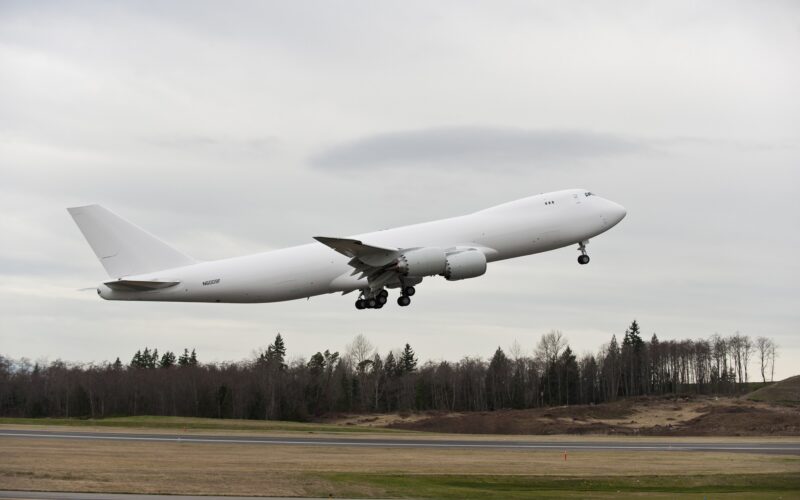FAA addresses Boeing 747-8 fuselage cracks caused by shimming errors

The United States (US) Federal Aviation Administration’s (FAA) latest Airworthiness Directive (AD) aims to address fuselage cracks on the aft side of the bulkhead of the Boeing 747-8.
According to the FAA, it received a report about cracks that formed on a Boeing 747-8’s “stringers, common to the end fittings, at stringer location S–42L/R and S–46L/R on the aft side of the bulkhead at station 2598”. The agency said that the aircraft had 5,517 flight cycles (FC) and 32,468 flight hours (FH) when the cracks were found.
Furthermore, Boeing discovered five cracks at stringer locations S–2L, S–6L, S–8L, and S–2R on the forward side and S–5L on the aft side of the bulkhead at STA 2598 on two further aircraft of the type during Foreign Object Debris (FOD) inspections. The FAA also had previous reports of similar cracks on Boeing 747-8s.
In all cases, cracks “had grown in longitudinal and transverse directions, but there was no other damage or deformation in the surrounding area”.
After Boeing had conducted an investigation into the cracks, the manufacturer found that when the aircraft was being assembled, “un-shimmed or incorrectly shimmed gaps that were larger than engineering requirements caused excessive and sustained internal tensile stresses and resulted in stress corrosion cracking in the stringers”.
As a result, the FAA has issued the new directive, requiring operators of all Boeing 747-8I and Boeing 747-8F aircraft to complete detailed inspections for cracks and on-condition applicable actions, as the condition “could lead to a failure of the skin adjacent to the bulkhead at STA 2598, which could adversely affect the structural integrity of the airplane”.
In the US, 42 Boeing 747-8s will be impacted by the AD, the effective date of which is September 6, 2023.
According to ch-aviation.com data, three airlines in the country fly the 747-8: Atlas Air, Polar Air Cargo, and UPS Airlines. Globally, 17 airlines actively operate 124 747-8s, excluding aircraft that are either stored or in maintenance.
An UPS spokesperson said that the airline’s Boeing 747-8F fleet is not affected by the directive.
In total, Boeing has supplied 155 aircraft of the type since it first delivered a 747-8F to Luxembourg’s CargoLux in October 2011.
The only party to have commented on the directive is Boeing, who have supported it without change.
According to the FAA’s estimates, a detailed inspection will cost airlines $7,735 per inspection cycle, totaling $324,870 for all US-based operators. If cracks are found, the repairs will cost $1,705 per stringer, split into $1,105 and $600 labor and parts expenses respectively.
However, the agency pointed out that Boeing may cover some of the costs of the AD under warranty, which would reduce the estimated costs of complying with the directive.
